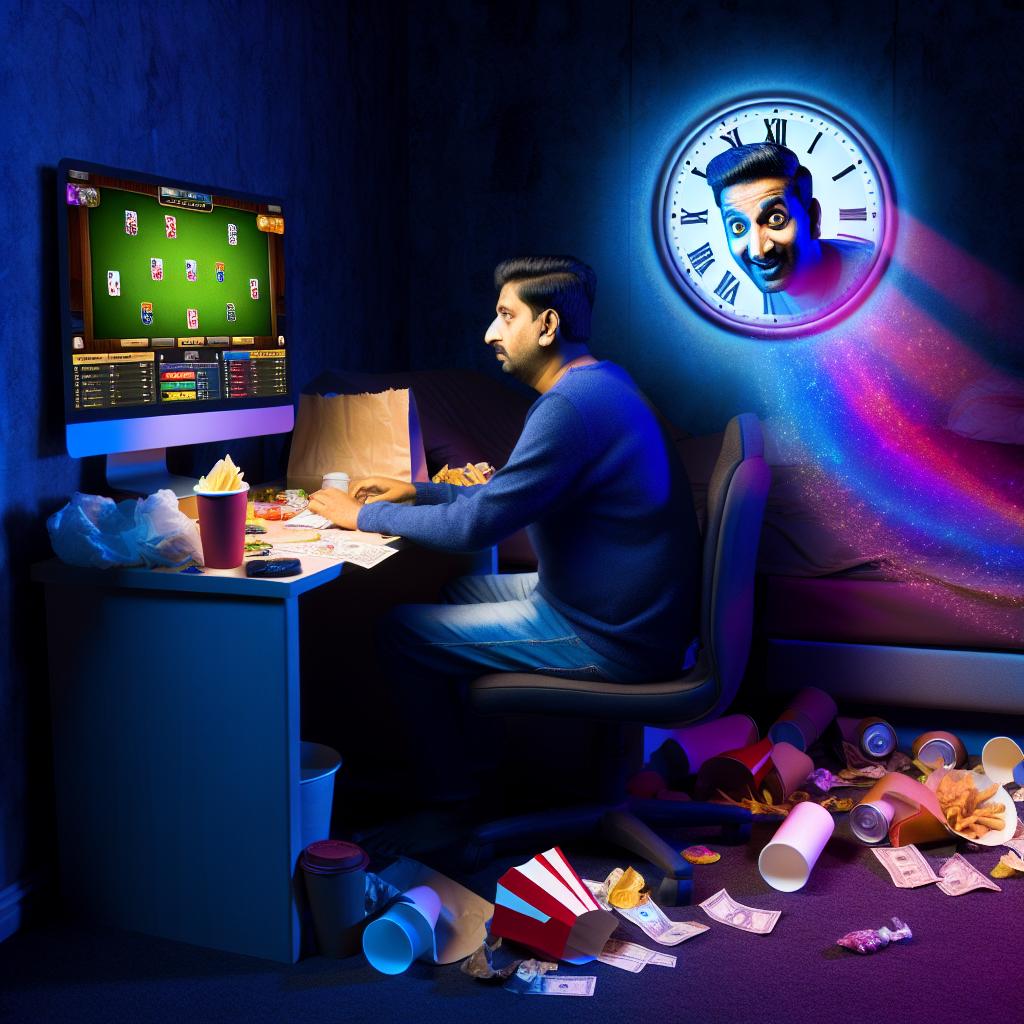Understanding Problem Gaming
Problem gaming refers to a pattern of gaming behaviors that significantly disrupts various areas of an individual’s life, including personal relationships, academic or work responsibilities, and mental health. It is characterized by an inability to control the amount of time spent on gaming, despite the negative consequences that may arise. This phenomenon, increasingly recognized by mental health professionals, encompasses a range of symptoms and behaviors that can affect different aspects of life.
Characteristics of Problem Gaming
Problem gaming can manifest in various ways, and understanding its characteristics is essential to identifying and addressing it. Below, we explore the typical traits seen in individuals who may be struggling with problem gaming.
Preoccupation with Gaming
Many individuals with problem gaming tendencies often find themselves continuously thinking about past gaming activities and eagerly planning their next gaming session. This overwhelming preoccupation can interfere with daily responsibilities, making it difficult for individuals to concentrate on tasks at hand or engage meaningfully in social activities.
Withdrawal Symptoms
Withdrawal symptoms are another key component of problem gaming, resembling those seen in other addictive behaviors. Individuals may experience a range of withdrawal symptoms such as irritability, a sense of restlessness, or even bouts of depression when unable to engage in gaming. This emotional distress underscores the grip that gaming can have on an individual’s emotional well-being.
Increased Tolerance
Over time, individuals might discover that they need to spend more extended periods gaming to achieve the same level of excitement or satisfaction as before. This escalation indicates an increased tolerance, a common hallmark shared with substance-related addictions. The need for prolonged engagement to maintain satisfaction suggests altered brain responses to gaming stimuli.
Unsuccessful Attempts to Control
A critical identifier of problem gaming is the individual’s repeated and unsuccessful attempts to reduce the time spent on this activity. This can result in feelings of frustration and helplessness, as the individual struggles with an inability to control or alter their gaming habits despite recognizing the negative impact on their life.
Consequences of Problem Gaming
The effects of problem gaming extend beyond personal struggles, impacting various facets of an individual’s life. Recognizing these consequences is crucial in understanding the pervasive nature of problem gaming.
Academic and Work Impact
Excessive gaming can detrimentally affect academic and professional lives. Students may experience a decline in academic performance, leading to lower grades as gaming takes precedence over study time and attending classes. In the workplace, employees might exhibit inefficiency or miss deadlines, further straining their professional relationships and advancement opportunities.
Social Isolation
As gaming increasingly absorbs an individual’s attention, it may lead to social isolation. Personal relationships may suffer as social interactions become limited and the gamer spends less time with friends, family, or participating in community activities. Over time, the gamer might find themselves isolated, lacking meaningful interactions outside of virtual environments.
Mental Health Concerns
The link between problem gaming and mental health concerns is substantial. Individuals may experience heightened levels of anxiety, depression, and stress, with gaming becoming an unhealthy coping mechanism that exacerbates these issues. The pervasive nature of gaming as a central focus in life can lead to difficulties disengaging from the virtual world, resulting in a negative impact on mental health.
Identifying Problem Gaming
Early identification and intervention are essential in addressing problem gaming. Recognizing warning signs can provide an opportunity for timely intervention. Some indicators include neglect of personal hygiene and basic needs, a noticeable decline in physical health, and frequent conflicts with friends or family stemming from gaming habits. Sensitivity to these signs can aid in assessing whether someone might be struggling with problem gaming.
Seeking Help
For those dealing with problem gaming, seeking appropriate support is vital. A range of resources is available to assist individuals in navigating these challenges. Consulting a healthcare professional specializing in behavioral addictions can offer strategic insights into treatment and recovery. Therapy options focusing on behavioral modification may provide constructive approaches for managing gaming habits.
In addition to professional help, online resources can serve as valuable tools for those seeking further support. Organizations and institutions specializing in mental health and addiction provide a wealth of information and guidance. For example, visiting websites like the Mental Health Foundation or contacting the NHS can help individuals explore different treatment programs and receive advice on managing problem gaming. Addressing the issue promptly can improve overall well-being and restore balance to various aspects of life.

